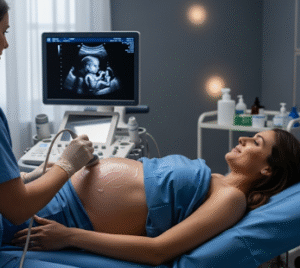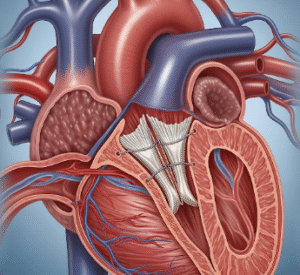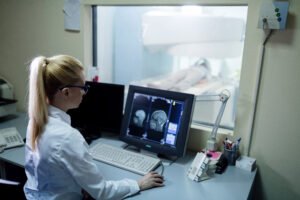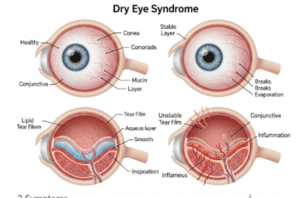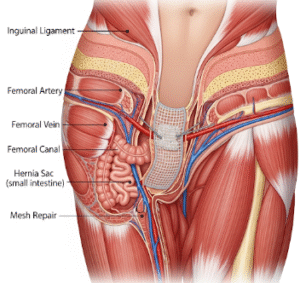Overview
Trisomy 18, also known as Edwards Syndrome, is a rare genetic disorder caused by the presence of an extra chromosome 18. This chromosomal abnormality leads to severe developmental and medical complications affecting multiple organ systems. The condition is associated with high mortality in infancy and significant health challenges in survivors. In South Korea, advanced prenatal screening, neonatal care, and multidisciplinary management are available to support affected families. Early diagnosis, specialized care, and family counseling play a critical role in improving outcomes and providing emotional and medical support.
What is Trisomy 18?
Trisomy 18 is a genetic disorder in which individuals have three copies of chromosome 18 instead of the usual two. This extra chromosome disrupts normal development, leading to a range of physical, neurological, and systemic abnormalities. The syndrome is categorized as full trisomy (most common), mosaic trisomy (where only some cells carry the extra chromosome), and partial trisomy (rare). In South Korea, genetic testing, including chorionic villus sampling and amniocentesis, is widely available to detect trisomy 18 during pregnancy, allowing families to prepare for necessary medical interventions.
Symptoms
Symptoms of Trisomy 18 are severe and affect multiple body systems:
- Craniofacial abnormalities: Small jaw (micrognathia), low-set ears, prominent occiput, cleft lip, or cleft palate
- Growth and development issues: Intrauterine growth restriction, low birth weight, delayed milestones
- Limb deformities: Clenched fists with overlapping fingers, rocker-bottom feet, joint contractures
- Neurological problems: Intellectual disability, hypotonia (poor muscle tone), seizures
- Cardiovascular defects: Ventricular septal defects, atrial septal defects, patent ductus arteriosus
- Gastrointestinal issues: Feeding difficulties, malformations, and reflux
- Respiratory complications: Increased risk of infections and apnea
Symptoms vary in severity depending on whether the trisomy is full, mosaic, or partial, but most affected infants face life-threatening challenges shortly after birth.
Causes
Trisomy 18 is caused by nondisjunction during cell division, resulting in an extra chromosome 18. The main causes include:
- Maternal age: Higher maternal age increases the risk of chromosomal nondisjunction
- Random genetic error: Most cases are sporadic with no family history
- Mosaic or partial trisomy: Rare errors during early embryonic cell division
There is no known environmental or lifestyle cause for trisomy 18, and genetic counseling is recommended for families with a previously affected child.
Risk Factors
Key risk factors associated with Trisomy 18 include:
- Advanced maternal age (35 years or older)
- Previous pregnancy affected by a chromosomal disorder
- Family history of chromosomal abnormalities
- Limited access to early prenatal screening or diagnostic testing
South Korea offers widespread prenatal screening and counseling programs to identify pregnancies at risk and provide timely guidance.
Complications
Trisomy 18 is associated with severe and often life-threatening complications:
- High neonatal mortality, with many infants not surviving beyond the first year
- Congenital heart defects leading to circulatory compromise
- Respiratory insufficiency and frequent infections
- Feeding and gastrointestinal difficulties
- Severe intellectual disability and developmental delays
- Physical disabilities including limb deformities and skeletal malformations
Early intervention programs and specialized neonatal care in Korea aim to manage these complications as effectively as possible, although the prognosis remains guarded.
Prevention
There is no guaranteed prevention for Trisomy 18, but certain strategies can reduce risk or allow early detection:
- Prenatal screening: Non-invasive prenatal testing (NIPT) and first-trimester screening
- Genetic counseling: Especially for parents with advanced maternal age or prior chromosomal disorders
- Early ultrasound monitoring: To detect markers such as growth restriction, heart defects, or structural anomalies
- Informed family planning: Understanding risks and available prenatal diagnostic options
Public health programs in South Korea educate prospective parents on genetic risks and the benefits of early screening.
Treatment Options in Korea
Treatment for Trisomy 18 focuses on supportive care, managing complications, and optimizing quality of life:
Diagnosis:
- Prenatal detection using non-invasive screening or invasive tests like amniocentesis
- Postnatal karyotyping to confirm the diagnosis
- Multidisciplinary evaluation to identify organ system involvement
Medical Treatments:
- Cardiac interventions: Surgery or medical management for congenital heart defects when feasible
- Respiratory support: Oxygen therapy, ventilatory support, or infection management
- Nutritional support: Feeding tubes or specialized formulas for growth and weight gain
- Seizure management: Antiepileptic medications for neurological complications
Supportive Care:
- Palliative care programs focusing on comfort and quality of life
- Physical, occupational, and speech therapy to maximize functional abilities
- Counseling and psychological support for families to cope with the emotional burden
- Regular follow-up with pediatric specialists including cardiology, neurology, and gastroenterology
South Korean hospitals provide comprehensive, multidisciplinary care to improve survival rates, manage complications, and support families emotionally and medically.




